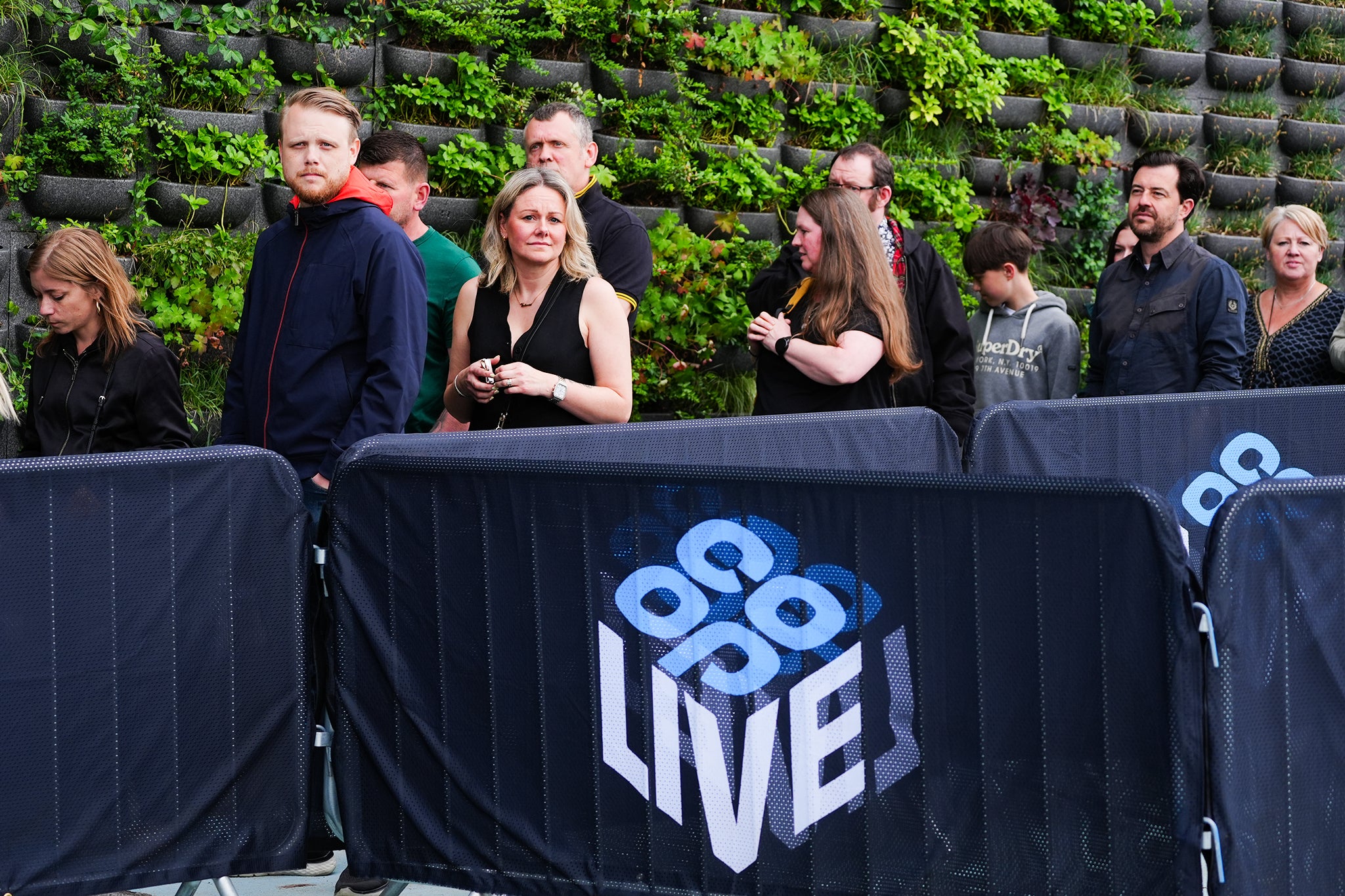When branding goes bad: what the corporate world can learn from the Co-op Live crisis
With Britain’s largest indoor arena finally open to the public, James Moore assesses the reputational damage caused by weeks of gig cancellations (and a falling air-con unit) – and what else can go wrong with big-money sponsorships


You have to feel for the Co-op. After paying a reputed £100 million to put its name to Britain’s largest, newest indoor area, a string of construction delays – and one unfortunately memorable incident involving an air-conditioning unit falling from a gantry during a soundcheck – lead to several sold-out gigs this month being rescheduled.
But despite a trail of angry and upset music fans, Manchester’s Co-op Live is finally open for business.
Why the group got involved is not hard to discern. Look at how successful O2’s sponsorship of what used to be the Millennium Dome (and was briefly the North Greenwich Arena during the London Olympics, because… sponsorship) has been.
To acts with the clout to draw 20,000 fans, booking a date at “The O2” – and more than one, if possible – is a must. Fans will probably have a good time there, too, although their wallets won’t thank them. The place runs with near-military precision. As a disabled gig-goer, it’s not one of those venues where I find myself weighing up whether I want to put myself through difficulties and/or discomfort before putting my money down.
Happy days for O2, whose name gets mentioned every time a customer talks about seeing a storming set by their favourite band. Switch your mobile phone contract to us and we can offer you access to a pre-sale – a fine selling point.
The Co-op, on the other hand, has found its name at the top of a barrage of bad publicity which it has played no part in creating.
That’s the risk of sponsorship. When it gets rough, it can get very rough. Just ask Gillette. Partnering with golf legend Tiger Woods in 2007, at the height of his powers, must have looked like a slam dunk. Woods is a sporting icon. An all-time great. He brought a new audience to a sport with a reputation for being of interest only to stuffy, middle-aged, middle-class, white executives.
The good walk both sides were enjoying was terminally spoiled by revelations about his marital infidelity. Suddenly, that slogan, “The best a man can get”, looked horribly tasteless. Gillette dropped Woods, and also dropped its “Gillette” champions programme featuring other sports legends.
Closer to home, and back in the North West, there could scarcely have been a better advertisement for how badly deals can go wrong than when Virgin Trains became the shirt sponsor for Preston North End.
The club had a fine season in 2014/2015, which meant plenty of good publicity for the shirt sponsor, especially after the team played their way into the League One play-off final, having finished third. If only it had secured the three points more, it would have taken to secure automatic promotion. The Wembley play-off final against Swindon was complicated by engineering works. Rail services from Preston were disrupted by work on the Virgin-operated West Coast Main Line, while work on the Great Western also meant no trains to and from Swindon.
“It’s unfortunate timing – and slightly embarrassing for us, bearing in mind our connections with Preston,” said Virgin Trains. The snafu led to the game being dubbed “The Replacement Bus Final”. A fine result for terrace wit, if nothing else.
Culture, and the misjudgement of your market, can lead to real financial pain, as evidenced by the impact on Bud Light when it sent cans bearing the likeness of Dylan Mulvaney, a trans TikTok influencer. The move sparked a fierce conservative backlash and contributed to a $1.4bn fall in North American sales for the Belgian parent company AB InBev – along with the brand’s loss of its market leading position.
In most cases, however, sponsorship fiascos lead more to red faces in the boardroom than they do to red ink on financial statements. This will probably be the end result for the Co-op, if the 23,500-capacity venue’s woes are finally over. Its opening night gig – postponed three times after part of the building’s ventilation and air-conditioning system fell from the ceiling during a soundcheck at the start of the month – was, according to the hometown band Elbow, “amazing”.
Is the upset caused by the cancellation of a gig at Co-op Live going to stop fans of, say, Take That, Peter Kaye, Rick Astley, Olivia Rodrigo and A Boogie Wit Da Hoodie – all of whom had to make alternative arrangements for their appearances – from buying groceries at a Co-op convenience store? Probably not, even if they give the place a sour look on their way out.
Still, there can’t have been many smiles in the boardroom as a result of the venue’s woes. This is a business with deep roots in the North West. It is headquartered in Manchester. It had its origins in the co-operative consumer societies started by the Rochdale Pioneers. This is not what anyone would have hoped for from associating with an ostensibly prestige project.
The Co-operative was nearly destroyed in recent memory, by a combination of the 2008 financial crisis and some spectacularly inept management. The appointment of former Asda boss Allan Leighton as chairman, however, sparked one of the more remarkable business turnarounds in recent memory.
Co-op Live is in nowhere near as big a PR disasater as its title sponsor once was. While the early reviews now its doors are finally open have been positive, it still needs to work to clean up the egg on its sponsors and on its own corporate face. May I suggest the appointment of someone like Leighton?






Join our commenting forum
Join thought-provoking conversations, follow other Independent readers and see their replies
Comments